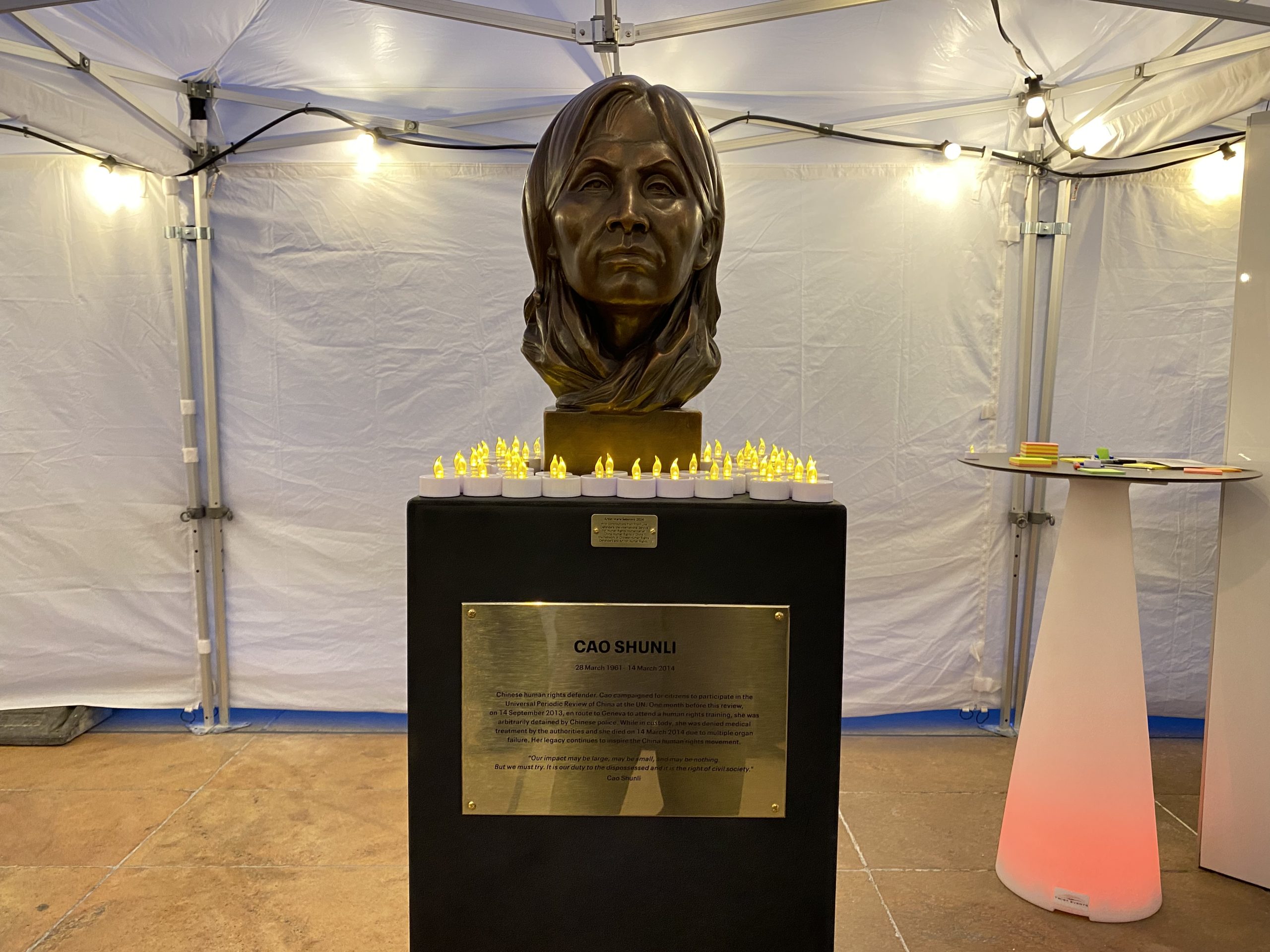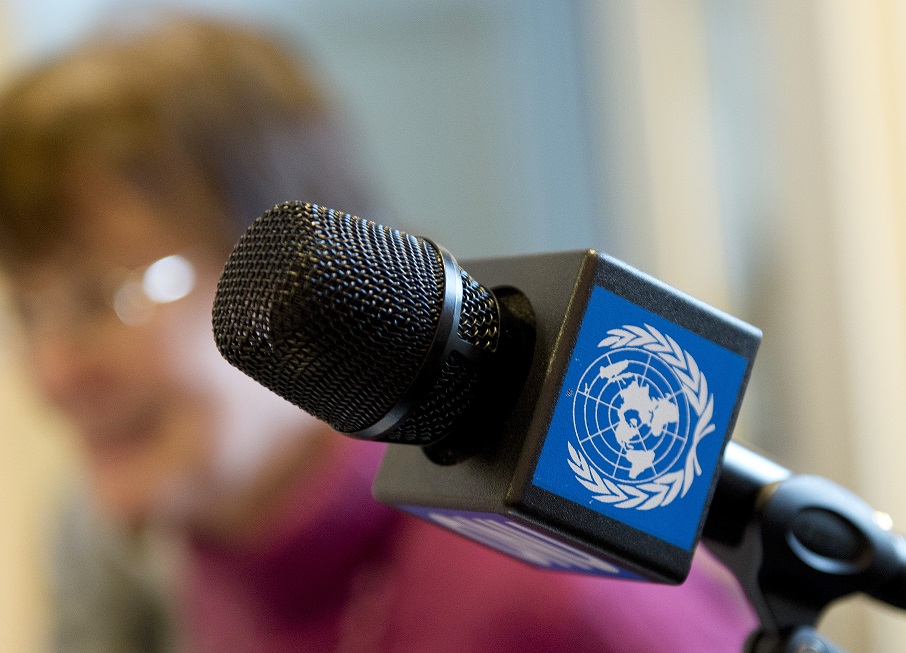Special Rapporteur on the rights of indigenous peoples
Victoria Tauli-Corpuz presented her report on 12 October 2017, this year focusing on the implementation of the UN Declaration on the Rights of Indigenous Peoples, citing that there has been limited progress. The Special Rapporteur called on States to review how their laws and policies might discriminate against indigenous peoples. She reminded States of the importance of protecting the land rights of indigenous peoples, because this enables them to protect natural resources and the environment. Several States, including Canada, Norway, and Lithuania, expressed concern over retaliation against human rights defenders and civil society activists working on indigenous rights, and asked how to better protect these defenders.
Full Session
Special Rapporteur on freedom of religion or belief
Ahmed Shaheed presented his report on 24 October 2017, focusing on religious intolerance and national practices. He reported that over 70 States have anti-blasphemy laws, which enable intolerance and contribute to the persecution of groups and individuals, hindering their right to freedom of religion or belief. The Special Rapporteur called on States to refrain from politicising religion, to promote religious literacy, and to implement transparent policies at local and national levels. During interactive dialogues, States asked how civil society can participate in protecting religious minorities, and which policy measures could most effectively protect religious minorities and safeguard the right to freedom of religion or belief.
Presentation
Full Session
Special Rapporteur in the field of cultural rights
Karima Bennoune presented her report on 25 October 2017, focusing on fundamentalism and extremism as threats to cultural rights, particularly the cultural rights of women. The Special Rapporteur stated that some governments and movements seek to ‘penalise and stigmatise’ women human rights defenders who promote cultural rights and oppose fundamentalism and extremism. Many countries asked about measures to promote women’s cultural rights and gender equality. However, Russia maintained that the Special Rapporteur adopted a Western approach to the mandate and rejected principles of cultural and religious heritage. The Special Rapporteur reaffirmed that the issue is a universal human rights issue, and she took a universal human rights approach.
Presentation
Full Session
Special Rapporteur on the situation of human rights in Myanmar
Yanghee Lee presented her report on 25 October 2017, stating that several laws in Myanmar are in contravention of international human rights standards and allow for the criminalisation of legitimate expression. The Special Rapporteur is gravely concerned over land confiscation, violence between groups, incidents against Christians and Muslims, the Rohingya refugee crisis, and the treatment of Rohingya in the Rakhine State. She calls on Myanmar to take measures to protect the Rohingya, allow humanitarian access, and ensure equality among different groups. Countries expressed serious concern over the situation of the Rohingya in Myanmar and across the border.
Presentation
Full Session
A resolution, to be introduced by the Organisation of Islamic Cooperation, is expected on Myanmar with a focus on the Rakhine people.
Special Rapporteur on the situation of human rights in the Islamic Republic of Iran
Asma Jahangir presented her report on 25 October 2017, noting some progress in the country’s legal framework and the participatory democratic process in the 2016 presidential elections. However, the Special Rapporteur was gravely concerned over the high rate of executions in Iran. She also reported on the detention or sentencing of 12 journalists, persecutions against human rights defenders and attacks against women human rights defenders through smear campaigns. Activists are arrested, tortured, and detained, and organised human rights activities are curbed to repress human rights defenders. The Special Rapporteur was also concerned that journalists who reported to her mandate did so fearing possible consequences from the Iranian government. Some countries, including Eritrea, Pakistan, and Syria, presented challenges to the basis for the mandate.
Presentation
Full Session
A resolution on the human rights situation on Iran is being negotiated at the Third Committee by Canada.
Special Rapporteur on the situation of human rights in the Democratic Peoples’ Republic of Korea (DPRK)
Tomas Ojea Quintana presented his report on 26 October 2017, focusing on political and security developments. The Special Rapporteur expresses concern over the recent sanctions on DPRK because they may lead to a negative impact on human rights. Additionally, women in detention centres repatriated by China to DPRK are vulnerable to sexual and gender-based violence within a culture of impunity. The Special Rapporteur calls on the international community to continue insisting on human rights principles because it has made DPRK more open to engaging with human rights mechanisms. Many countries expressed extreme concern and supported the work of Quintana. The DPRK was not present at the interactive dialogue.
Presentation
Full Session
A resolution on DPRK is being negotiated by the European Union and Japan.
Special Rapporteur on the situation of human rights in Eritrea
Sheila B. Keetharuth presented her report on 26 October 2017, remarking on the situation of Eritreans fleeing the country and Eritrea’s engagement with the international community. The Special Rapporteur noted that cases she has received on enslavement, imprisonment, enforced disappearances, rape, torture, and murder amount to crimes against humanity. The Special Rapporteur also reported cases of extrajudicial killings of those attempting to cross the border out of the country, including children. The Special Rapporteur called for the implementation of human rights norms while avoiding reprisals against those that exercise freedom of expression and opinion. Venezuela, Egypt, Nicaragua, and Russia, among other countries, stated that the Universal Periodic Review and other human rights mechanisms at the Human Rights Council are more appropriate platforms for addressing a country-specific issue.
Presentation
Full Session
Special Rapporteur on the situation of human rights in Belarus
Miklós Haraszti presented his report on 26 October 2017, focusing largely on the concentration of power in the Belarus government and its impact on civil and political rights. ‘Belarus has returned to mass and violent oppression of those who dared to criticise public policy,’ said Haraszti. He reported that Treaty Body recommendations to Belarus were omitted from its human rights action plan; it’s parliament is ineffective; political opposition is silenced and arrested; independent media is harassed and intimidated, and the claim that civic activism is dangerous has been reinforced. Haraszti said that for human rights to improve, there needs to be a long period of development involving civil society. Countries like Venezuela, Eritrea, Syria, Cuba, and Pakistan challenged the need for a country-specific mandate.
Presentation
Full Session
ISHR is supportive of the important work of Special Rapporteurs in raising awareness of human rights situations in specific countries and across a range of issues.
Photo: Jean-Marc Ferré via UN Photos




